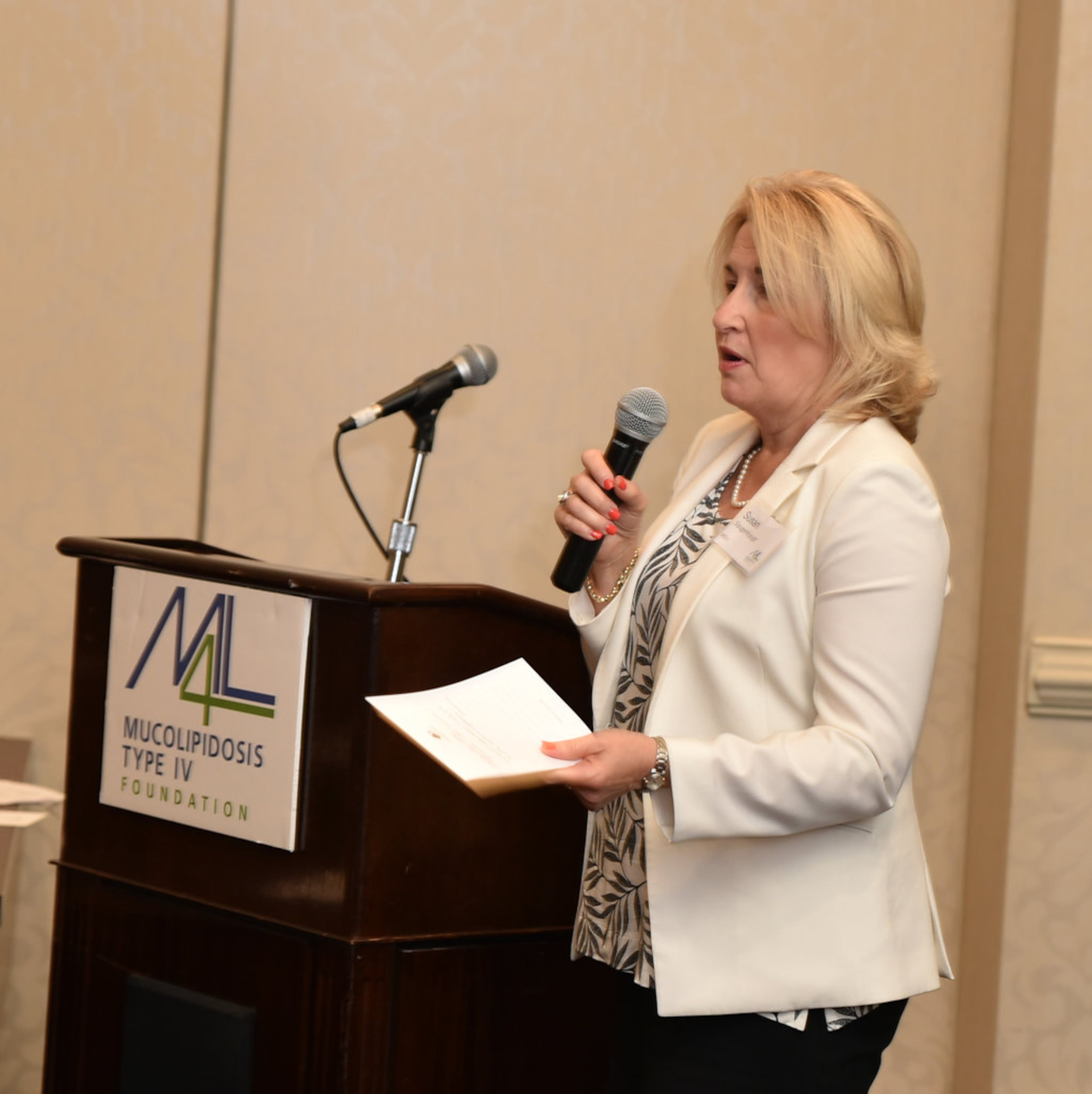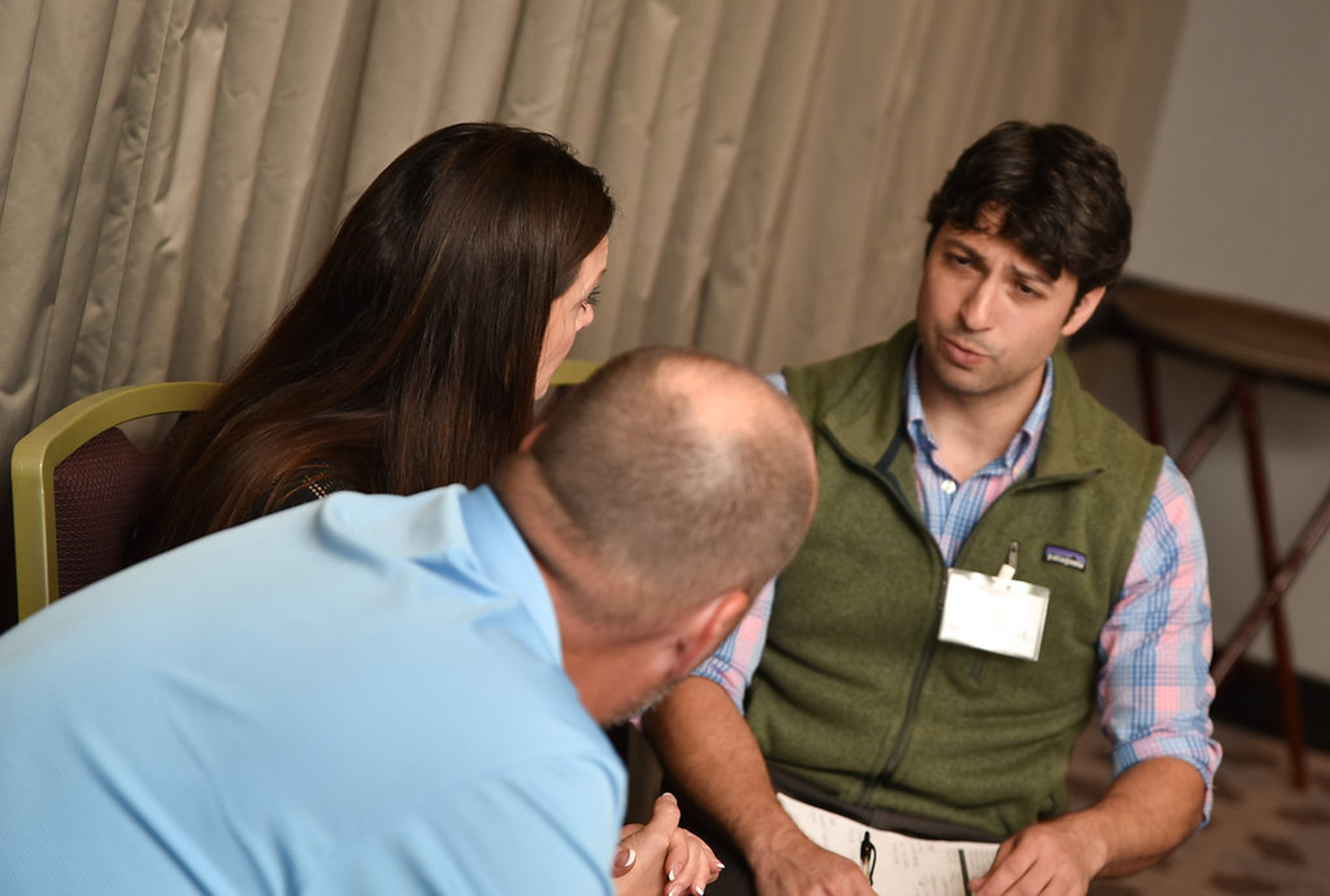This Life with Gracie: FDA-approved drug holds first promise for kids with genetic disease

In the nearly five decades since Mucolipidosis Type IV, or ML4, was first identified, children with the disease have had little promise of ever having a “normal” life.
ML4 generally strikes their nervous system early and hard. Most never learn to walk or talk and have a maximum mental capacity of about 18 months. By their teen years, the disease steals their eyesight, and by their 20s, their life is at stake.
But just in the past few months, research using an already FDA-approved drug is giving parents like Randy and Caroline Gold of Atlanta hope.
“I think that this drug is the first of many treatments that will be available to kids with ML4,” Randy Gold said. “We are incredibly excited because it is the first opportunity to treat a kid affected by ML4.”
Gold is president of the Mucolipidosis Type IV Foundation, an international nonprofit focused on funding research directed at understanding the genetic disease and developing treatments.
The Golds’ 10-year-old daughter, Eden, was diagnosed with ML4 in 2009. The couple haven’t been shy about soliciting donations for the foundation to help fund research or talking about their experiences caring for Eden.
They’ve been on the front lines since 2010 doing what they could to not only improve Eden’s life but the lives of all kids with ML4. They first shared their story here last summer.
RELATED | DeKalb couple's personal tragedy becomes crusade for genetic testing
At the time, the Golds simply wanted to raise awareness about another nonprofit they founded called J-Screen, which makes comprehensive saliva-based genetic carrier screening accessible and affordable across the United States.

As this year’s ML4 International Research Conference approached late last month, Randy Gold reached out again, excited about the promise of this new research.
He knows the drug is not going to instantly turn Eden into a “typical” kid; that she is not going to wake up tomorrow and get herself dressed for school.
And yet, it’s hard not to be excited about this first treatment.
“We’re certain more treatments will have to follow,” Gold said. “Unfortunately, this drug is not one and done.”
According to Dr. Rebecca Oberman, executive director of the ML4 Foundation, ML4 is a lysosomal storage disorder where wastes that would normally be degraded and removed from healthy cells instead accumulate in cells throughout the body, causing particular damage to the brain, central nervous system, and retina. One of the first effects of this disease is widespread neurological inflammation throughout the brain, which amplifies many of the cognitive and motor problems in these children. Neuroinflammation has been identified as an early and significant aspect of ML4 disease and is also present in many other diseases.

ML4 researchers at Massachusetts General Hospital discovered that Fingolimod, a drug that is already approved by the FDA for treatment of multiple sclerosis in children, appears to reduce this neuroinflammation in ML4 cells and also to restore neurons, which were not functioning due to the buildup of cellular waste matter, back to a more normal function.
With funding from the foundation, researchers began testing the drug a year ago in mice cells, then expanded to do more advanced testing to validate their findings. The results were published in the May issue of The Journal of Human Molecular Genetics.
Further testing is now being done in a bigger study of live mice, with study results expected late this year.
RELATED | Duluth mom channels her pain into helping severely ill kids
“This is the first time with this disease that we have a drug that shows a level of rescue, taking a cell and returning it to a healthier state,” Oberman said. “If the results from the mouse study are as positive as we hope, it could mean a clinical trial in kids with ML4 in 2019, giving us the first opportunity to treat these kids with something that the FDA agrees will have a positive impact on them. It’s not a cure, but it will treat a major symptom of this disease, neurological inflammation. I can’t tell you now what it will look like in each individual child, but we know this is treating something that is a significant part of this disease.”
What shouldn’t be lost in this is the ML4 Foundation is based here in Atlanta and is the engine fostering much of the research internationally in Israel, Italy, Boston and other places across the U.S. and Europe. Just in the past three years, the foundation has funded nearly $1 million in research with another $5 million funded by the National Institutes of Health.
Oberman created a model for the foundation that requires scientists to work collaboratively, which she believes leads to treatment options being discussed that otherwise would not have been on the table.

Indeed, almost every day she is on a conference call to move from idea to research laboratory.
In this case, Oberman said, one scientist mentioned the possibility of a drug compound that should be tested, another had the ability to do the testing, and once that was done, another could do genetic analysis of the cells, and still another could look at the gene expression of those cells.
“In under a year, this group of researchers from Georgia Tech, Harvard and the Weizmann Institute in Israel published a paper based on their collaborative data showing Fingolimod was effective,” Oberman said. “That extraordinary level of research is what we need to be able to go to the FDA and say we need to use this in children.”
And that’s not all. Many treatments for major diseases are found by studying rare diseases like ML4, Oberman said, noting researchers studying ML4 see lessons for other diseases like Alzheimer’s that also exhibit neuroinflammation.
That’s huge. Not just for kids suffering with ML4, but for the rest of us.
Find Gracie on Facebook (www.facebook.com/graciestaplesajc/) and Twitter (@GStaples_AJC) or email her at gstaples@ajc.com.
HOW YOU CAN HELP
Tax-deductible donations can be made at ml4.org.


